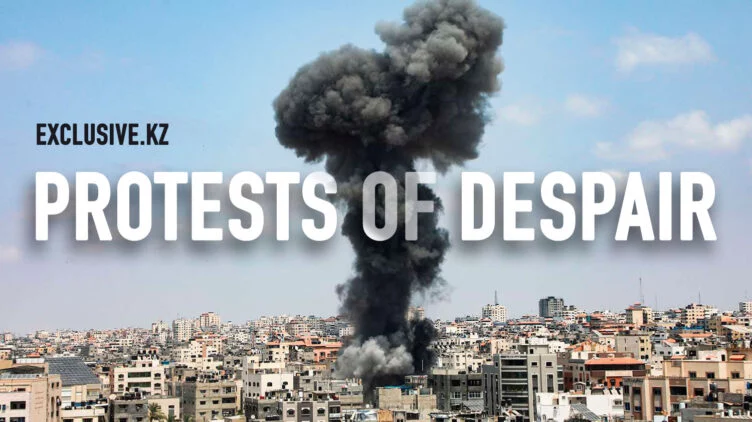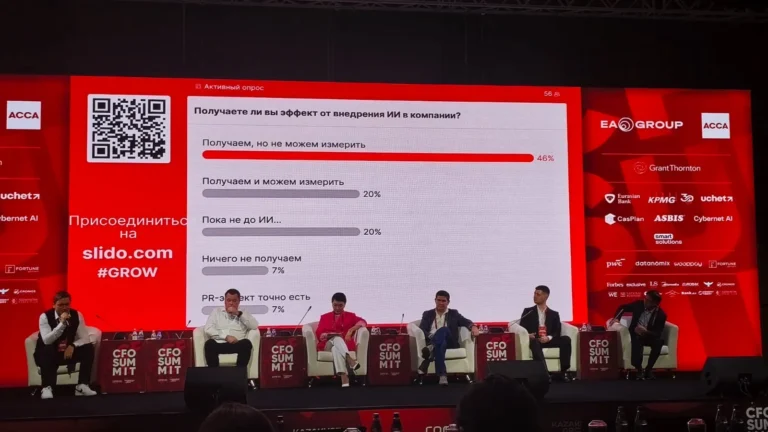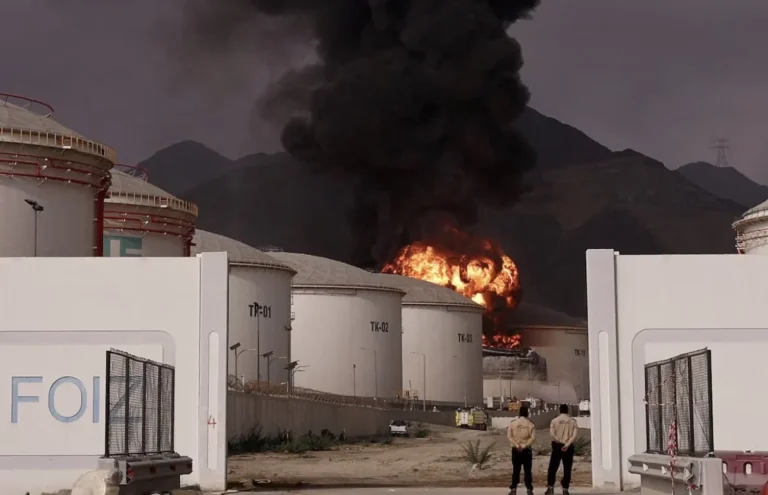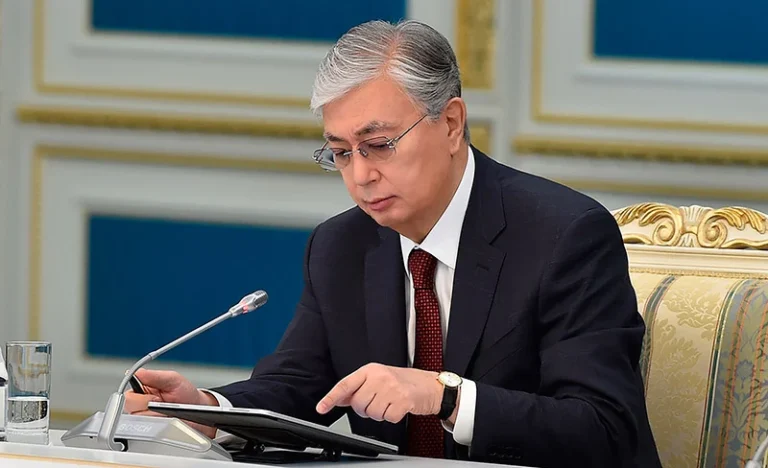It is no longer an exaggeration to say that our democracies are crumbling

These are crazy times. Biblical disturbances in nature, such as the repeated torrential rain in Dubai or the mass fish die-off in Vietnam’s overheated reservoir, seem to mirror our overheated politics and social environment.
At such moments, it is crucial to keep a cool head and analyze all the weird phenomena as closely, objectively, and dispassionately as possible. And few phenomena nowadays are weirder than the protests surrounding Israel’s bombardment and invasion of Gaza in response to Hamas’s terrorist attack last October.
We should acknowledge the rhetoric from some politicized Muslims, such as those who recently demonstrated in Hamburg, Germany, chanting “Kalifat ist die Lösung” (“Caliphate is the solution”). And we should concede that, despite the massive presence of Jews among the protesters, there are at least a few true anti-Semites among them (just as there are some genocidal maniacs in Israel).
While many commentators have noted the parallel between today’s pro-Palestinian demonstrations and the 1968 student protests against the Vietnam War, the Italian philosopher Franco Berardi points to an important difference. Rhetorically, at least, the 1968 protesters explicitly identified with the anti-imperialist Viet Cong position and a broader, positive socialist project, whereas today’s protesters very rarely identify with Hamas, and instead are “identifying with despair.”

As Berardi puts it: “Despair is the psychological and also cultural trait that explains the wide identification of young people with the Palestinians. I think that the majority of the students today are consciously or unconsciously expecting the irreversible worsening of the conditions of life, irreversible climate change, a long-lasting period of war, and the looming danger of a nuclear precipitation of the conflicts that are underway in many points of the geopolitical map.”
It would be difficult to explain the situation any better than that. The authorities’ obscenely repressive response to the protests supports Berardi’s hypothesis. The harsh crackdowns are not motivated by any fear that the protests will launch a new political movement; rather, they are expressions of panic – a futile refusal to confront the despair that pervades our societies.
Signs of this panic are everywhere, so allow me to offer just two examples. First, late last month, 12 US senators sent a letter to the International Criminal Court threatening it with sanctions should it decide to issue an arrest warrant for Israeli Prime Minister Binyamin Netanyahu.
Although this was strictly a Republican undertaking, President Joe Biden’s administration also has pressured the ICC not to charge Israeli officials over war crimes committed in Gaza. Such threats signal nothing less than the demise of shared global values. Though this ideal was always somewhat hypocritical (the United States, for example, has refused to join the ICC), governments at least upheld it in spirit.
The second recent example supports the same conclusion. On May 4, France (complying with a German-issued visa ban) denied entry to Ghassan Abu-Sitta, a British-Palestinian surgeon who was scheduled to provide testimony to the French Senate on what he had witnessed while treating victims of the war in Gaza. With such crude acts of censorship and marginalization happening before our eyes, it is no longer an exaggeration to say that our democracies are crumbling.
Everyone knows that the situation in Gaza is unacceptable. But a great deal of energy has been devoted to postponing the kind of intervention that the crisis requires.
One way to help break the impasse is to offer public support for the student protests. As US Senator Bernie Sanders put it on April 28, “What Netanyahu’s right-wing, extremist, and racist government is doing is unprecedented in the modern history of warfare … Right now, we are looking at the possibility of mass starvation and famine in Gaza. When you make those charges, that is not anti-Semitic. That is a reality.”
After the October 7 attacks, Israel emphasized the raw realities of what Hamas had done. Let the images speak for themselves, Israeli authorities said. The brutal killings and rapes had been recorded by the perpetrators and were there for everyone to see. There was no need for complex contextualization.
Can we not now say the same about the Palestinian suffering in Gaza? Let the images speak for themselves. See the starving people in packed improvised tents, the children slowly dying as Israeli missile and drone strikes continue to reduce buildings to ruins, then to rubble, and then to dust.
I am reminded of what Michael Ignatieff (then a journalist) wrote in 2003 about the US invasion of Iraq: “For me, the key issue is what would be the best result for the Iraqi people – what is most likely to improve the human rights of 26 million Iraqis? What always drove me crazy about the opposition [to war] was that it was never about Iraq. It was a referendum on American power.”
The same point does not apply to today’s anti-war protests. Far from a referendum on Palestinian, Israeli, or American power, they are driven primarily by a desperate plea simply to stop the killing of Palestinians in Gaza.
So, what should the Biden administration do (aside from replacing Vice President Kamala Harris with Taylor Swift on this year’s ticket)? For starters, the US can join the global initiative to recognize Palestine as a state. Far from being an obstacle to peace in the Middle East, Palestinian statehood is a precondition for any serious negotiations between the two sides. By contrast, rejecting (or endlessly postponing) such recognition will inevitably support the fatalistic conclusion that war is the only option.
Strange as it may sound, we are witnessing one of the downsides of America’s loss of hegemonic power (as was also the case with the US withdrawal from northern Syria and then Afghanistan). Ideally, the US would simply invade Gaza from the sea, re-establish peace and order, and provide the population with humanitarian assistance. But don’t count on it. One can always rely on the US to miss an opportunity to deploy its remaining imperial power for a good cause.
Copyright: Project Syndicate, 2024.





Все комментарии проходят предварительную модерацию редакцией и появляются не сразу.